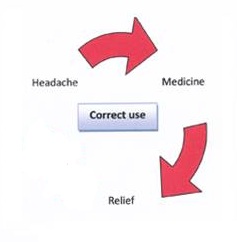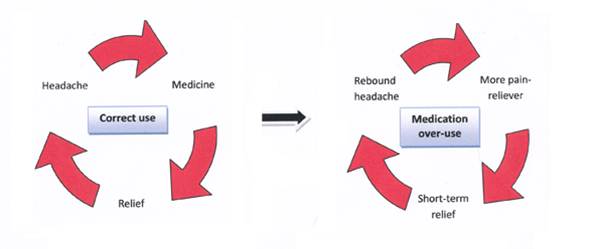
Many patients manage their infrequent migraine headaches with triptan medications, such as sumatriptan.
We call these “abortive” medications – you take them as needed whenever you have a headache to make it go away.
These medications set off an “explosion” of chemicals inside the brain, “extinguishing” the migraine just like an explosion of dynamite can put out an uncontrolled oil rig fire:
However, sometimes, that “chemical explosion” doesn’t put the fire out completely, and it comes right back.
We call this “rebound” headache, and we have already blogged about how taking too much abortive medication (including over the counter medications like Excedrin Migraine) for migraines can lead to headache all the time, chronic daily headache, because of analgesic rebound.
Data from a new study has recently confirmed this: The large American Migraine Prevalence and Prevention (AMPP) study showed that patients with very poor headache control were 4 times more likely to progress into chronic migraine during the following year than those with better control.
Clearly, poor headache control leads to more and more headaches, presumably because of analgesic rebound.
The solution? Obtaining more sustained migraine control by starting a daily preventative medication for migraine like topiramate, valproic acid or botulinum toxin.
If your headaches are getting more frequent or out of control, seek the help of a board certified neurologist sooner rather than later!


